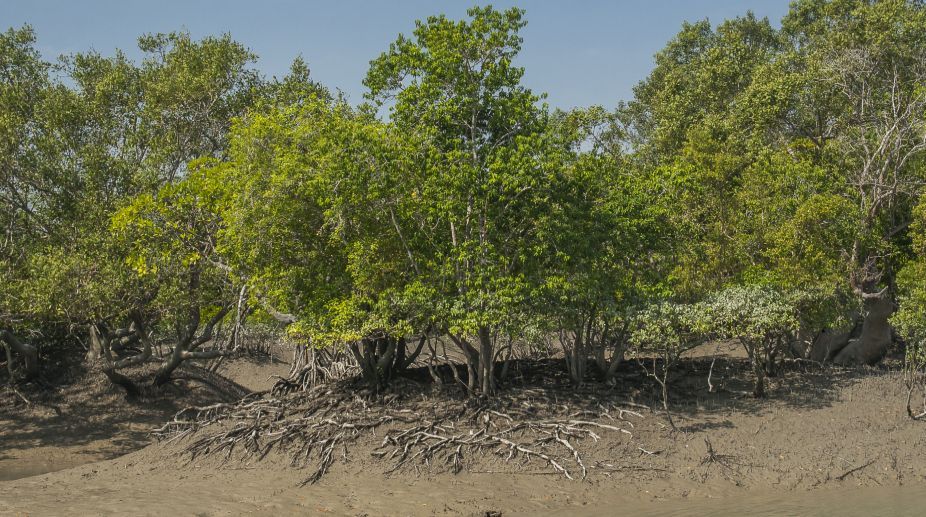Empowered women of the tiger land
With their backs to the wall, the brave women of Sundarban don’t look for promises.

(Photo: Getty Images)
Environment experts on Friday laid emphasis on the need for conservation of biodiversity and sustainable use of biological resources, with special reference to the Sundarbans.
Dr Punarbasu Chaudhuri, HOD, Department of Science, University of Calcutta, gave a presentation about the Biodiversity of the Sundarbans, which covered nearly 105 species of flowering plants including true mangrove and mangrove associates.
It also covered 150 species of algae, nearly 125 species of fungi, 32 species of lichens, 154 species of fishes, 58 species of reptiles, 163 species of birds, 40 species mammals.
Advertisement
Quite a good number of them is in endangered list while six species of mammal are now extinct from Indian Sundarbans, Chaudhuri said at a seminar on “Conservation of Biodiversity and Sustainable use of Biological Resources.”
“The biodiversity of Indian Sunderbans are threatened because of natural calamities, deforestation, unsuitable forest use, conversion of forest to agricultural land, settlements, aqua culture, artificial embankments, poaching, pollution, netting of shrimp seeds and tourism,” he said.
Eco-tourism being practised at Sundarbans is not an ideal one as rampant use of thermocol, bon fires and several other activities are eroding natural resources, he alleged.
Also there is scant regard to involve the real stake holders, the local residents, in tourism sector in the Sundarbans, Chaudhuri said.
The seminar was organised by the Guru Nanak Institute of Pharmaceutical Science and Technology (GNIPST) with the help of West Bengal Biodiversity Board.
“People are now well aware about the close link between climate change and biodiversity. Changes in climate also results changes in ecosystems.
Due to man-made reasons sudden changes in climate upsets ecosystem and this in turn alters the adjustment and adaptation pattern of many species affecting biodiversity,” said Dr Swati Chakraborty, Convenor of the conference.
Dr Abhijit Sengupta, Director-cum-Principal, GNIPST said, “The aim of this conference is to discuss the relevant and topical issues in contemporary times about human welfare of the society and their research opportunities in all respect along with the scientific poster competition.
The seminar seeks to provide an ideal platform for interaction and exchange of ideas and views between scientists, researchers, students and faculty members of different biological research areas across West Bengal.”
Advertisement